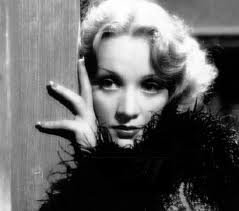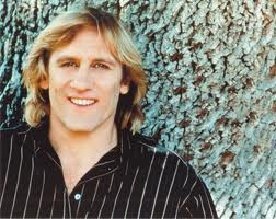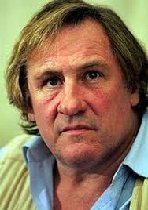Mary Jane "Mae" West (August 17, 1893 – November 22, 1980) was an American actress, singer, comedian, screenwriter, and playwright whose career spanned over seven decades. Considered a sex symbol, she was known for her breezy sexual independence and her lighthearted bawdy double entendres, often delivered in a husky contralto voice. She was active in vaudeville and on stage in New York City before moving to Los Angeles to begin a career in the film industry.
West was one of the most controversial movie stars of her day; she encountered problems especially with censorship. She once quipped, "I believe in censorship. I made a fortune out of it." She bucked the studio system by making comedy out of conventional beliefs, and the Depression-era audience admired her for it. When her film career ended, she wrote books and plays, continued to perform in Las Vegas and London and on radio and television, and recorded rock and roll albums. In 1999, the American Film Institute posthumously voted her the 15th greatest female screen legend of classic American cinema.
Early life
Mary Jane West was born in either the Greenpoint or Bushwick neighborhood of Brooklyn on August 17, 1893, before New York City was consolidated. She was delivered at home by an aunt who was a midwife. She was the eldest surviving child of Mathilde Delker (originally "Doelger" and later Americanized to "Delker" or "Dilker"), a corset and fashion model, and John Patrick "Battlin' Jack" West, a prizefighter who later worked as a "special policeman" and created his own private investigations agency. Her German-born mother, who went by the nicknames "Tillie" and "Matilda", had emigrated from Bavaria in 1886 with her five siblings and their parents, Christiana (née Brüning) and Jakob Doelger. Her paternal grandmother after whom she was named, Mary Jane (née Copley), was of Irish-Catholic descent. Her paternal grandfather, John Edwin West, was of English and Scottish descent.
West's parents married in Brooklyn on January 18, 1889, to the pleasure of the groom's parents and the displeasure of the bride's, and raised their children as Protestants. Her eldest sister, Katie, died in infancy. Her remaining siblings were a sister named Mildred Katherine "Beverly" West and a brother named John Edwin West II (sometimes inaccurately called "John Edwin West, Jr."). During her childhood, the family moved to various parts of Woodhaven, as well as the Williamsburg and Greenpoint neighborhoods of Brooklyn. At Neir's Social Hall in Woodhaven, West supposedly first performed professionally.
Television, and the next generations
On March 26, 1958, West appeared at the live televised Academy Awards and performed the song "Baby, It's Cold Outside" with Rock Hudson, which received a standing ovation. In 1959, she released an autobiography, Goodness Had Nothing to Do With It, which became a best seller and was reprinted with a new chapter in 1970. West guest-starred on television, including The Dean Martin Variety Show in 1959 and The Red Skelton Show in 1960, to promote her autobiography, and a lengthy interview on Person to Person with Charles Collingwood in 1959, which never aired. CBS executives felt members of the television audience were not ready to see a nude marble statue of West, which rested on her piano. In 1964, she made a guest appearance on the sitcom Mister Ed.[96] Much later, in 1976, she was interviewed by Dick Cavett and sang two songs on his "Back Lot U.S.A." special on CBS
Death
In August 1980, West tripped while getting out of bed. After the fall, she was unable to speak and was taken to Good Samaritan Hospital in Los Angeles, where tests revealed that she had suffered a stroke. She died three months later on November 22, at the age of 87. Three days after her death, a private service was held at the church in Forest Lawn Memorial Park. Her friend, bishop Andre Penachio, officiated at the entombment in the family mausoleum at Cypress Hills Cemetery in Brooklyn, which had been purchased in 1930 when her mother died. Her father and brother were also entombed there before her, and her younger sister, Beverly, was laid to rest in the last of the five crypts less than 18 months after West's death.
If you want to read a lot more, go here: https://en.wikipedia.org/wiki/Mae_West
- 1 (18-oz.) package frozen roasting vegetables (Brussels sprouts, butternut squash & onions)
- 2 red apples, peeled and thinly sliced
- 1/4 cup frozen cranberries (see Tip)
- 1/2 tsp. ground cinnamon
- 1 tsp. salt, divided
- 1/2 tsp black pepper, divided
- 4 Tbsp. vegetable oil, divided
- 1/3 cup flour
- 1 tsp. poultry seasoning
- 4 frozen boneless, skinless chicken breasts, partially thawed
- Preheat oven to 425º.
- In a large bowl, combine vegetables, apple slices, cranberries, cinnamon, 1/2 teaspoon salt, 1/4 teaspoon black pepper, and 2 tablespoons oil; mix until thoroughly combined.
- Place on rimmed baking sheet and bake for 10 minutes ,
- Meanwhile,in a shallow dish, combine, flour, poultry seasoning, remaining 1/2 teaspoon salt, and remaining 1/4 teaspoon black pepper; mix well. Wet chicken under cold water, then coat evenly in flour mixture.
- In a large skillet over medium-high heat, heat oil until hot. Add chicken and sauté for 3 to 4 minutes on each side, just until golden.
- Remove vegetables from oven after 10 minutes, and arrange chicken between vegetables. Place back into oven for 12 to 15 minutes or until chicken is no longer pink in center and vegetables are heated through.
- Typically, Americans produce fruitcakes abundant in fruit and nuts
- In America, mail-order fruitcake began in 1913.
- Charities often sell commercial fruitcakes from catalogs as a fundraising event.
- In 1935, the expression “nutty as a fruitcake” was coined. The phrase came about as a result of excess nuts some Southern bakeries added to their fruitcakes due to their access to cheap nuts.
- Most mass-produced fruitcakes in America are alcohol-free.
- Some traditional recipes include liqueurs or brandy. Bakers then complete the fruitcake by covering it with powdered sugar.
- Some fruitcake makers soaked their fruitcakes in brandy-soak linens believing the cakes improve with age.










